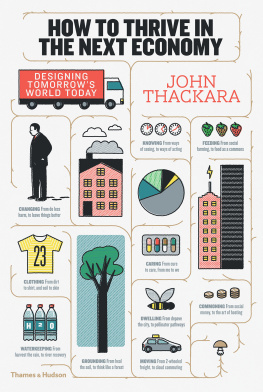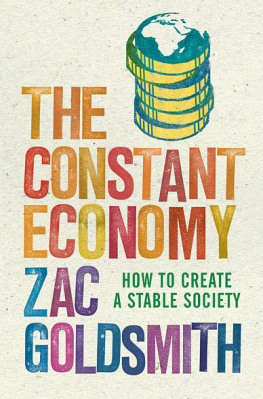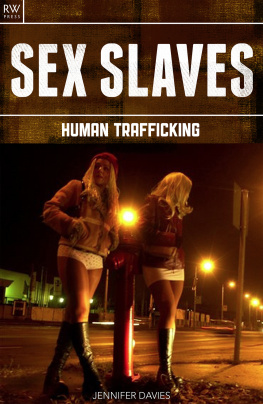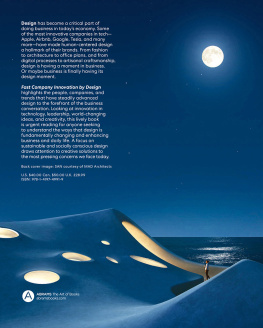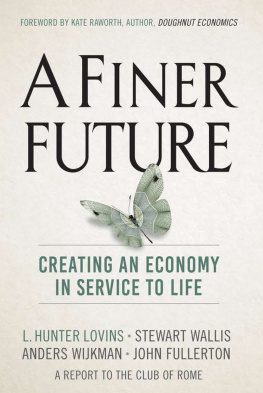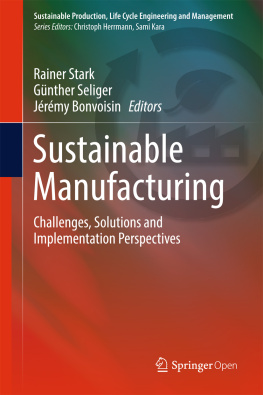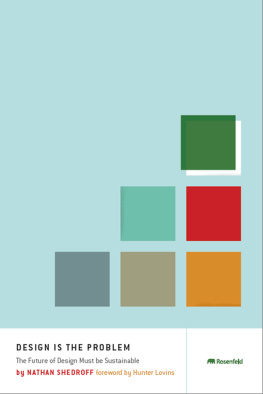
ABOUT THE AUTHOR
John Thackara is a writer and event producer who hasspent a lifetime searching for live examples of what a sustainable future can be like. He writes about these stories at his blog, Doors of Perception, and organizes festivals that bring the project leaders he has met together. John's ten previous books include Design After Modernism: Beyond the Object and In the Bubble: Designing in a Complex World. Along the way, John has been a magazine editor; a publisher; Director of Research at the Royal College of Art, London, where he is now a Senior Fellow; and Director of the Netherlands Design Institute. He has curated two national biennials Designs of the Time in the UK, and City Eco Lab in France and nine Doors of Perception conferences, in Amsterdam and India; The Economic Times of India praised these events for their brilliant insights into the internet and sustainability. In 2013, John launched a workshop format called xskool that helps diverse groups develop the design agenda for their bioregion.
Other titles of interest published by
Thames & Hudson include:
Design for the Real World
Human Ecology and Social Change
Design and Landscape for People
New Approaches to Renewal
Beyond Shelter
The Eco-Design Handbook
A Complete Sourcebook for the Home and Office
www.thamesandhudson.com
www.thamesandhudsonusa.com
Praise for John Thackaras book
IN THE BUBBLE: DESIGNING IN A COMPLEX WORLD
Visionary METROPOLIS
Alive, connected, contemporary ID MAGAZINE
One of the great voices on sustainability BUSINESS WEEK
Has established a global reputation as a cutting edge design expert WALL STREET JOURNAL
Brilliant insights into the internet and sustainability ECONOMIC TIMES OF INDIA
A synthesis of the way the world moves for those who use design as a powerful life-forming tool PAOLA ANTONELLI, Museum of Modern Art, New York
A visionary voice for the wired era SAN FRANCISCO CHRONICLE
Always provocative and intelligent CORE77 (USA)
Top Dog in the space of flows RHIZOME (USA)
A business provocateur FAST COMPANY
Whatever you are designing, keep this book next to you BILL MOGGRIDGE, Cooper-Hewitt, Smithsonian Design Museum, New York

First published in the United Kingdom in 2015 as
How to Thrive in the Next Economy
ISBN 978-0-500-51808-3
by Thames & Hudson Ltd, 181a High Holborn, London WC1V 7QX
and in the United States of America by
Thames & Hudson Inc., 500 Fifth Avenue, New York, New York 10110
How to Thrive in the Next Economy 2015 John Thackara
This electronic version first published in 2015 by
Thames & Hudson Ltd, 181a High Holborn, London WC1V 7QX
This electronic version first published in 2015 in the United States of America by
Thames & Hudson Inc., 500 Fifth Avenue, New York, New York 10110.
To find out about all our publications, please visit
www.thamesandhudson.com
www.thamesandhudsonusa.com
All Rights Reserved. No part of this publication may be reproduced or transmitted in any form or by any means, electronic or mechanical, including photocopy, recording or any other information storage and retrieval system, without prior permission in writing from the publisher.
ISBN 978-0-500-77305-5
ISBN for USA only 978-0-500-77306-2
CONTENTS
CHANGING: FROM DO LESS HARM, TO LEAVE THINGS BETTER
At a dusty crossing on the long cross-country road from Kanpur to Lucknow, in Uttar Pradesh, India, we come across a huge video screen on the back of a flat-bed truck. Together with a dozen villagers, four people on bicycles, and a cow, we stare in a daze at the screen. On the left side of the screen the landscape on each side of the River Ganges, in whose vast fertile plain we are standing, is made to look hot, dusty, and wretched. On the right of the screen, a better future is portrayed: busy cities, robot assembly lines, and high-speed trains. This before-and-after sequence is followed by a full-screen video in which computer-generated apartment blocks sprout like so many mushrooms from bright green grass along the banks of the River Ganges. Welcome to Trans-Ganga HighTech City, explains the voiceover.
May the odds be ever in your favour! mutters my young companion. This is pure Hunger Games, she explains, and goes on to describe how, in a film that everyone in the world has seen except me, a young woman called Katniss lives in a dystopian, post-apocalyptic nation. Every year The Capitol, where the rich people live, asserts its power over the poor regions that surround it by staging the Hunger Games in which boys and girls, selected by lottery from the poor areas, compete in a televised battle to the death. May the odds be ever in your favour!, I learn, is what the creepy ruler guy says when opening the Games in which all but one competitor will die.
Trans-Ganga HighTech City resembles The Hunger Games all too well a glossy, gated city surrounded by social hardship and degraded landscapes. Trans-Ganga is one of 100 Indian turn-key cities that developers want to build on green land swept clean of its small farmers and biodiversity. Investors are promised that special laws will be passed to ensure that millions of poor Indians are excluded from the privileges of such great infrastructure. These physical and social impacts are disturbing enough but what really cranks up the anxiety level are the bright and perky voices, on screens everywhere, proclaiming these developments to be for the good of all. Whenever a voice is raised in protest at the negative impacts of these plans, the perky heads blame the losers for their own misfortune: Get a job! Try harder! May the odds be ever in your favour!
The words we choose are important as we try to make sense of these new times. One mans energy descent is another womans energy transition. Talk of an impending crisis is scary; realizing that the crisis is already underway, less so. The end of growth sounds grim but it is not the end of life. The collapse of civilization is a terrifying prospect; the birth of a new one puts things in a different light. What is civilizational collapse, after all, quips the Italian physicist Ugo Bardi, a self-styled stoic scientist, other than a period in which things are changing faster than usual?
The apocalyptic view is couched in the language of danger and collapse. Industrial civilization has started to crash, say the doomers. For them, our best course of action is to head for the hills with a truckload of guns and peanut butter. At the other extreme, optimistic technology buffs are confident that man-made solutions will soon allow us to carry on as usual. And what about the rest of us? Most people I know are anxious about whats happening around them, but silently so; they think less about the collapse of civilizations than with finding work, or feeding their kids. But they we feel less and less secure. It doesnt help that the media are filled with fatuous advice about what we should do: drive a Tesla? Change a light bulb? Give us a break.
This book is that break. It tells of a third social movement much bigger than the rifle-packing doomers and the green-tech dreamers thats emerging as the global crisis unfolds. This movement is below the radar of mainstream media, but it contains a million active groups and rising. Quietly, for the most part, communities the world over are growing a replacement economy from the ground up. As you will read in the pages that follow, their number includes energy angels, wind wizards, and watershed managers. There are bioregional planners, ecological historians, and citizen foresters. Alongside dam removers, river restorers, and rain harvesters, there are urban farmers, seed bankers, and master conservers. Youll meet building dismantlers, office-block refurbishers, and barn raisers. There are natural painters, and green plumbers. There are trailer-park renewers, and land-share brokers. The movement involves computer recyclers, hardware re-mixers, and textile upcyclers. It extends to local currency designers. There are community doctors. And elder carers. And ecological teachers.
Next page
